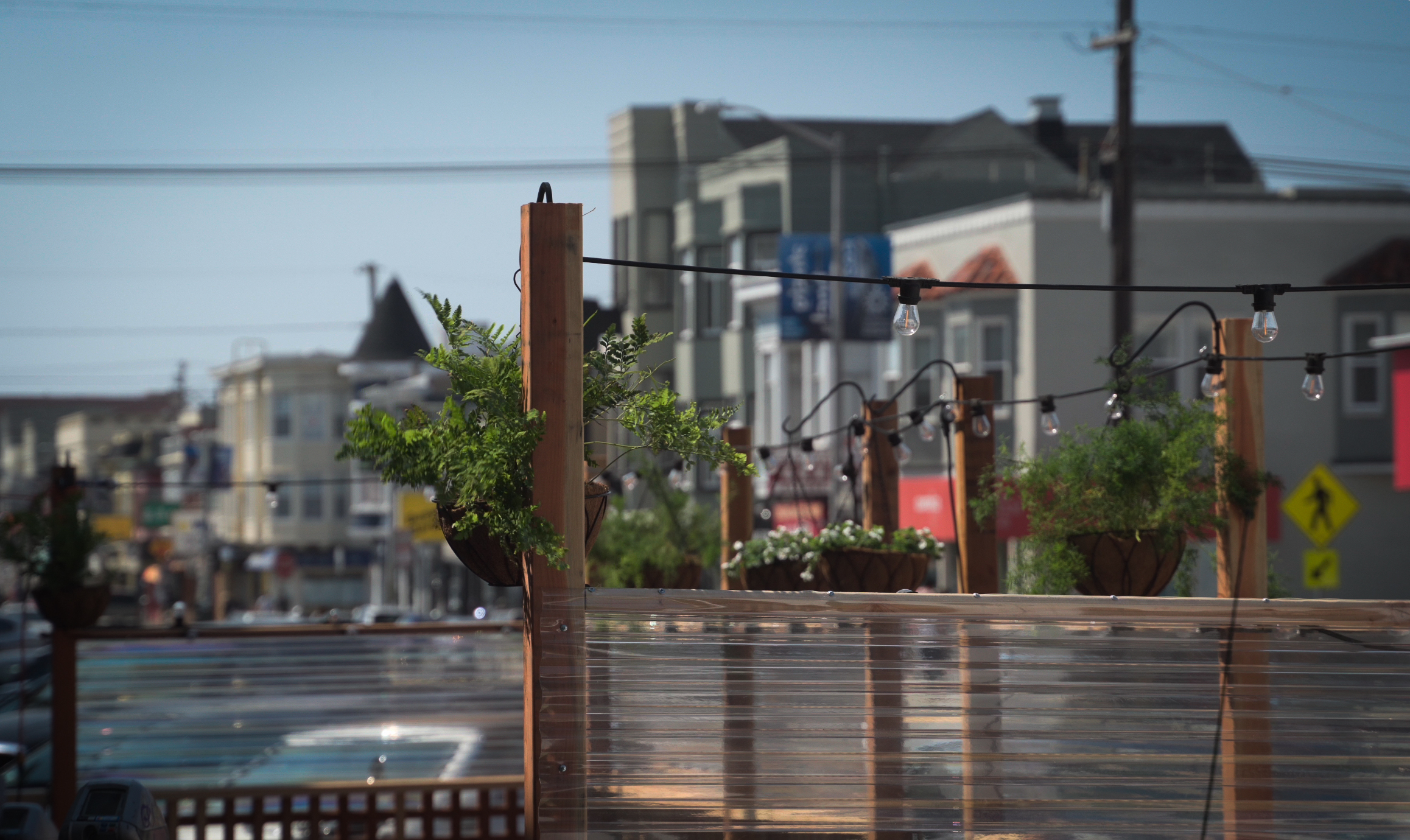The San Francisco Board of Supervisors voted unanimously on Tuesday to make Shared Spaces, a program that allows businesses to set up outdoor dining and other services, a permanent fixture of the city.
The version approved by Supervisors on Tuesday reflects a compromise between an initial plan introduced several months ago by Mayor London Breed and various constituencies who raised concerns around disability and public access to city streets and sidewalks.
“Great compromise, and appreciate the unanimous support,” said Sharky Laguana, head of the city’s Small Business Commission. “This is government doing great work and opens up an exciting new chapter for San Francisco.”
The legislation makes the Shared Spaces program—which was established as an emergency measure during the pandemic—permanent, with permit applications and approvals jointly managed by the Planning Department, Department of Public Works, Municipal Transportation Agency, Fire Department and Entertainment Commission. Among other provisions, the program mandates the creation of a “one-stop” application portal and sets permit fees depending on the size and type of space.
Policymakers disagreed on the finer points of the legislation, however.
In May, members of the Board’s Land Use and Transportation Committee voiced concerns over its potential impact on seniors and people with disabilities, and posited that the public should have a right to use the privately maintained Shared Spaces during off-hours. Supervisor Aaron Peskin also questioned whether the Planning Department was the appropriate point of contact for the program.
On Tuesday, Supervisors further debated whether Shared Spaces must be accessible to the public at all hours, with business owners prohibited from locking the structures overnight and held responsible for maintaining cleanliness except in cases of hazardous waste.
Many restaurant and bar owners objected to those terms, with some reporting issues like damage, trash, excrement and hypodermic needles in Shared Spaces left unsecured overnight. Some Supervisors also raised concerns about noise off-hours for residents who live above or nearby Shared Spaces.
“There are particular areas where, if they were required to keep it open, it would create significant challenges with behavior that is disruptive, destructive or even dangerous,” said Supervisor Matt Haney, who represents District 6. “I’m concerned about being so sweeping and one-size-fits-all.”
Ultimately, Supervisor Ahsha Safai introduced two amendments to the Shared Spaces legislation: One to allow businesses to lock their Shared Spaces overnight if they so choose, and another to designate Planning as the lead department for the program.
The motions passed 6-5 and 7-4, respectively, and the amended version passed unanimously. The version approved on Tuesday requires Shared Space operators to maintain a bench or other public seating, but gives them the option of locking their spaces between the hours of midnight and 7 a.m.
It’s likely that the Shared Spaces ordinance will undergo further revisions over time, said Laguana, who called it a sea change in how land is used in San Francisco.
“I think we’ll be futzing with this for years to come,” Laguana said.
Restaurateurs, bar owners and other small proprietors have urged the city to codify the Shared Spaces program for months, with some reporting heavy debts from the pandemic and a need for clarity on what structures they should invest in to gradually make up some of their lost revenue.
In a report, the San Francisco Controller’s Office estimated that businesses with parklets—an earlier, much more limited outdoor dining program—grew their quarterly revenues by 29%, or $56,000 on average, compared to 10% revenue growth among similar businesses that did not install a parket. That suggests a benefit both to struggling businesses and to the broader city economy, according to the Controller.
To date, 2,481 businesses have applied for Shared Spaces permits, of which 1,900 have been approved.
Mayor Breed, who is slated to sign the legislation in the coming weeks, praised the vote in a statement on Tuesday.
“By taking the necessary steps to make Shared Spaces permanent, we are providing another lifeline for local businesses to thrive and creating a clear path forward towards rebuilding our economy as San Francisco recovers from COVID-19,” said Breed.
